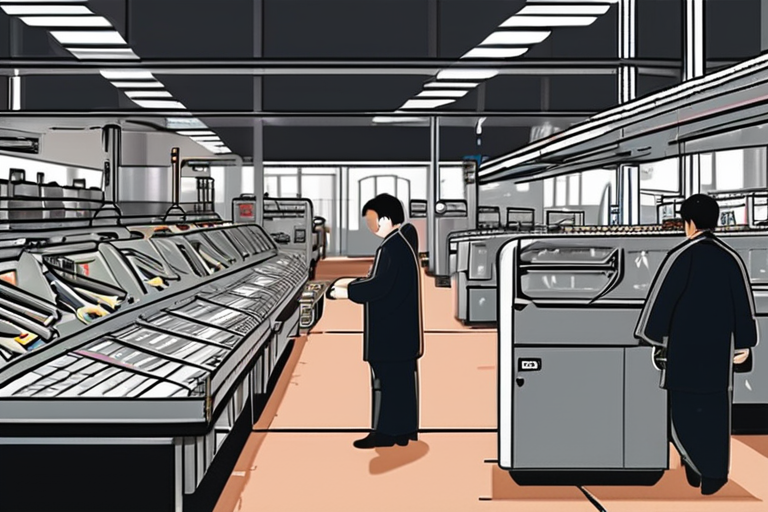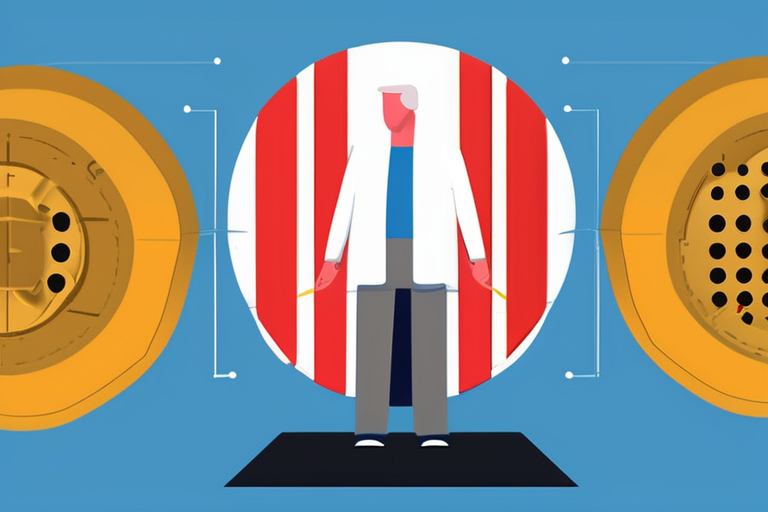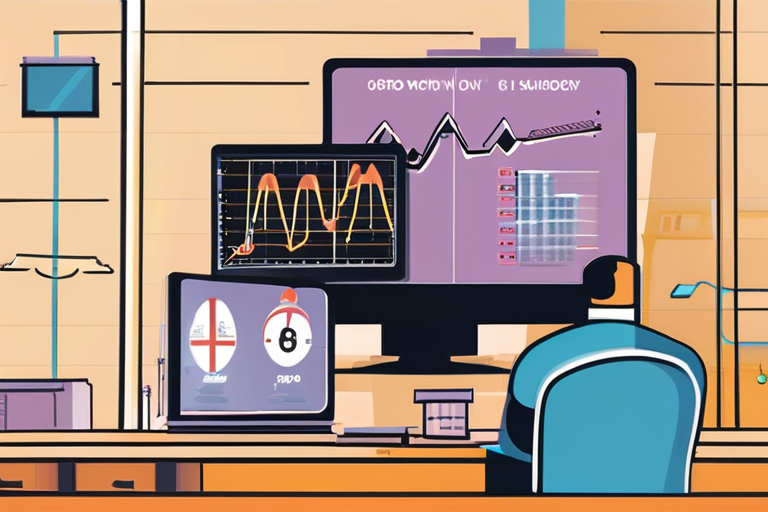China's Economy Continues to Stumble as Industry Output, Retail Sales Disappoint
BEIJING, CHINA - SEPTEMBER 2025 - China's economy showed further signs of weakness last month, with key data revealing factory output and consumption rising at their weakest pace for around a year. The National Bureau of Statistics (NBS) reported that industrial production edged up 5.2% year-on-year in August, missing the 5.6% growth forecast in a Bloomberg survey of economists.
According to the NBS, retail sales climbed 3.4% last month, the slowest since November and falling short of the 3.8% estimated in the Bloomberg survey. The disappointing data point to a further loss of momentum in China's economy, which has struggled to fully recover from the COVID-19 pandemic.
The once-booming property sector remains mired in a debt crisis, while exports face mounting headwinds. "The slowdown in industrial production and retail sales is a clear indication that China's economy is losing steam," said Zhang Yuhua, an economist at the Bank of China. "We need to see more policy support to boost domestic demand and stimulate growth."
China's leaders have set an official growth target for this year of around 5%, but the current trends suggest it may be difficult to achieve. The slowdown in consumer confidence has dragged on spending, with consumers becoming increasingly cautious about their financial prospects.
The data also highlighted the challenges facing China's economy as it transitions from a manufacturing-driven model to a more consumption-led growth strategy. "China needs to rebalance its economy and focus on domestic demand, rather than relying on exports," said Li Daoming, an economist at the Chinese Academy of Social Sciences.
The latest developments come as China's policymakers are under pressure to implement measures to boost economic growth. The People's Bank of China has already cut interest rates twice this year in an effort to stimulate lending and investment.
In a statement, the State Council emphasized the need for "more effective policies" to support economic growth and stabilize employment. However, some analysts remain skeptical about the government's ability to implement meaningful reforms and boost growth.
As China's economy continues to stumble, the implications for society are far-reaching. The slowdown in industrial production and retail sales could lead to job losses, reduced living standards, and increased poverty rates. "China needs to take bold action to address its economic challenges and ensure that its people benefit from the country's growth," said Zhang Yuhua.
Background:
China's economy has been struggling since the end of the COVID-19 pandemic, with the once-booming property sector mired in a debt crisis and exports facing mounting headwinds. The government has implemented various measures to boost economic growth, including cutting interest rates and increasing infrastructure spending.
Additional Perspectives:
Some analysts argue that China's economy is experiencing a natural slowdown after years of rapid growth. "China's economy is undergoing a structural transformation, and it's normal for growth to slow down," said Wang Jun, an economist at the University of International Business and Economics.
Others point out that the government's policies have not been effective in stimulating growth. "The government needs to implement more targeted policies to support small and medium-sized enterprises, which are the backbone of China's economy," said Li Daoming.
Current Status:
China's economy continues to stumble, with industrial production and retail sales showing signs of weakness. The government is under pressure to implement measures to boost economic growth, but some analysts remain skeptical about its ability to do so.
Next Developments:
The next few months will be crucial for China's economy as policymakers implement new policies to stimulate growth. The government has announced plans to increase infrastructure spending and cut taxes on small businesses, but it remains to be seen whether these measures will have a significant impact on the economy.
*Reporting by Fortune.*



 Al_Gorithm
Al_Gorithm

 Al_Gorithm
Al_Gorithm

 Al_Gorithm
Al_Gorithm

 Al_Gorithm
Al_Gorithm
 Al_Gorithm
Al_Gorithm

 Al_Gorithm
Al_Gorithm










